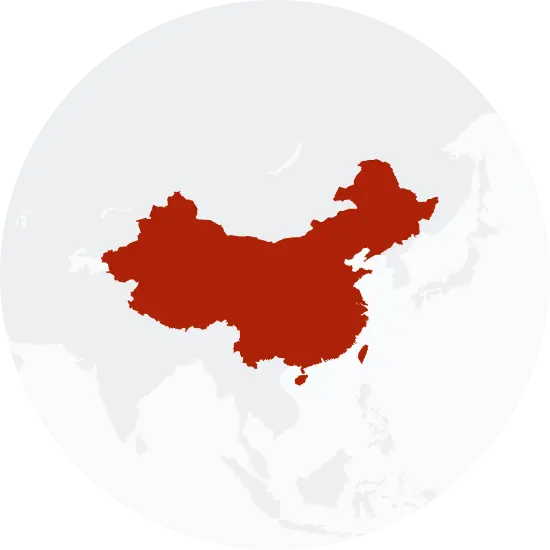Explore the Family Name Kwong
How common is the last name Kwong in the United States?
Based on the Decennial U.S. Census data, the popularity of the surname "Kwong" has seen a slight increase between 2000 and 2010. In 2000, Kwong was ranked as the 6246th most popular surname, while in 2010 it moved up to the 6084th position, demonstrating a 2.59% increase in rank. The count of individuals with this surname also increased from 5037 in 2000 to 5637 in 2010, an increase of 11.91%. The proportion per 100k people with the Kwong surname slightly increased from 1.87 to 1.91 during this period, resulting in a 2.14% change.
| 2000 | 2010 | Change | |
|---|---|---|---|
| Rank | #6,246 | #6,084 | 2.59% |
| Count | 5,037 | 5,637 | 11.91% |
| Proportion per 100k | 1.87 | 1.91 | 2.14% |
Race and Ethnicity of people with the last name Kwong
In terms of ethnicity, the Decennial U.S. Census data reveals that the majority of individuals with the surname "Kwong" identify as Asian/Pacific Islander, though there was a minor decrease from 96.17% in 2000 to 94.94% in 2010. There was a notable increase in the percentage of individuals identifying with two or more ethnicities, rising from 1.69% in 2000 to 2.31% in 2010, a change of 36.69%. Those identifying as White also increased from 1.43% to 1.88%, a growth of 31.47%. Meanwhile, those identifying as Hispanic rose minimally from 0.66% to 0.75%, a 13.64% change. The census began recording individuals identifying as Black and American Indian and Alaskan Native in 2010, with 0.12% and 0.00% respectively.
| 2000 | 2010 | Change | |
|---|---|---|---|
| Asian/Pacific Islander | 96.17% | 94.94% | -1.28% |
| Two or More Races | 1.69% | 2.31% | 36.69% |
| White | 1.43% | 1.88% | 31.47% |
| Hispanic | 0.66% | 0.75% | 13.64% |
| Black | 0% | 0.12% | 0% |
| American Indian and Alaskan Native | 0% | 0% | 0% |
Kwong ancestry composition
23andMe computes an ancestry breakdown for each customer. People may have ancestry from just one population or they may have ancestry from several populations. The most commonly-observed ancestry found in people with the surname Kwong is Chinese, which comprises 77.3% of all ancestry found in people with the surname. The next two most common ancestries are Chinese Dai (8.9%) and Vietnamese (5.0%). Additional ancestries include British & Irish, French & German, Filipino & Austronesian, Japanese, and Spanish & Portuguese.
Ready to learn more about your ancestry? Get the most comprehensive ancestry breakdown on the market by taking our DNA test. Shop 23andMe
| ANCESTRY BREAKDOWN | COMPOSITION |
|---|---|
| Chinese | 77.3% |
| Chinese Dai | 8.9% |
| Vietnamese | 5.0% |
| Other | 8.8% |

Possible origins of the surname Kwong
Your DNA provides clues about where your recent ancestors may have lived. Having many distant relatives in the same location suggests that you may all share common ancestry there. Locations with many distant relatives can also be places where people have migrated recently, such as large cities. If a large number of individuals who share your surname have distant relatives in a specific area, it could indicate a connection between your surname and that location, stemming from either recent ancestral ties or migration.
Based on 23andMe data, people with last name Kwong have recent ancestry locations all within China.
| RECENT ANCESTRY Location | Percentage |
|---|---|
| Guangdong, China | 94.90% |
| Fujian, China | 94.10% |
| Jiangsu, China | 93.20% |
| Shandong, China | 93.20% |
| Zhejiang, China | 92.40% |
What Kwong haplogroups can tell you
Haplogroups are genetic population groups that share a common ancestor on either your paternal or maternal line. These paternal and maternal haplogroups shed light on your genetic ancestry and help tell the story of your family.
The top paternal haplogroup of people with the surname Kwong is O-B426, which is predominantly found among people with East Asian & Indigenous American ancestry. Haplogroup O-B426 is descended from haplogroup O-M1359. Other common haplogroups include O-P201 and O-M307.1, which are predominantly found among people with East Asian & Indigenous American and East Asian & Indigenous American ancestry. Other surnames with similar common haplogroups are: Fong, Zwick, Eakins, Eames, Earhart, Nicolosi, Nicoll, Nicoletti, Earls, Nickles.
The most common maternal haplogroups of people with Kwong surname are: B4, D4, M7b. These most commonly trace back to individuals of East Asian & Indigenous American and European ancestry.
 Paternal Haplogroup Origins O-M1359
Paternal Haplogroup Origins O-M1359
Your paternal lineage may be linked to many Indian ethnic groups
Haplogroup O1b1a1a is thought to have arisen in India, roughly 25,000 to 40,000 years ago, and is present in many Indian ethnic groups today. The Indian subcontinent holds four major language groups, called Austro-Asiatic, Dravidian, Indo-European, and Tibeto-Burman. Haplogroup O-M95 likely originated in Indian Austro-Asiatic populations. Its early members carried both the O1-M95 haplogroup and Austro-Asiatic languages further into Southeast Asia through the Northeast Indian corridor. Current research suggests migrating members of O-M95 left eastern India traveling east, through Myanmar, southern China, Vietnam, Laos, Cambodia, and Thailand, and ended in the Andaman and Nicobar Islands. One study found that 100% of a Nicobar Island population belonged to haplogroup O-M95.
Your maternal lineage may be linked to the Han
Members of haplogroups B4 and B5 are quite frequent in both northern and southern Han Chinese populations. The Han people, who all share the same language and similar cultural practices, are the largest ethnic group in the world, with about 1.2 billion people. Historical evidence shows that Han people are descendants of the ancient Huaxia tribes that come from northern China, centered in Zhongyuan, China's Central Plain. The spread of Han people, language and culture from northern to southern China only occurred in the last 2,000 years, and was likely driven by warfare and famine in the north.

What do people with the surname Kwong have in common?
Spoiler alert: it's complicated. People with the same last name are usually no more genetically similar than a randomly sampled group of people from the same population. That said, people with the same surname are more likely to have similar ancestries than randomly sampled individuals. The reason is the tendency of people with similar cultural or geographical backgrounds to preferentially mate with one another. That's why people who share a surname may be more likely to share traits and tendencies in common than people within the general population. Check out the percentages below to see the prevalences of tastes, habits, and traits of people with your surname compared with prevalences among 23andMe users.
Preferences
Traits
Habits
Wellness

Migraine
A severe headache characterized by intense pain, sensitivity to light and sound, and often accompanied by nausea and vomiting.
"Kwong" Surname 9.5%
23andMe Users 16.4%
Are health conditions linked to the last name Kwong?
The short answer is that, if there is an association between surname and health, it's usually more about your ancestry than your name. Individuals with a given surname are no more genetically similar than the general population but often have similar ancestries. The populations of people associated with those shared ancestries often have sets of genetic variations, also known as alleles, in common. Some of those alleles are associated with a greater likelihood of developing certain diseases.
Disease variant frequency by ancestry
Disease allele frequencies in populations associated with the surname Kwong are shown below. Important Note: not everyone with a disease allele will develop these health condition








